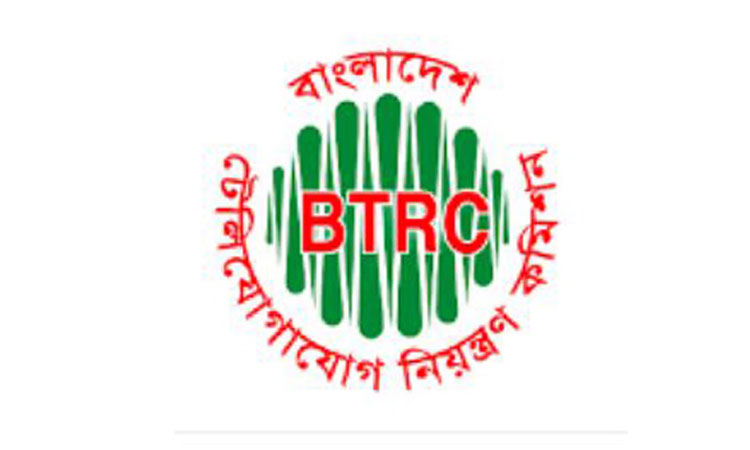News Flash


DHAKA, Sept 26, 2025 (BSS) - The country's new telecom policy has recognised Mobile Virtual Network Operators (MVNOs), opening the door for companies to offer mobile services without owning physical networks.
The move is expected to intensify market competition, draw new investments, and introduce tailored and innovative offerings for varied consumer segments, including students, rural communities and expatriates.
Following the government's gazette notification on September 22, the newly adopted Telecommunications Network and Licensing Policy 2025 has empowered the Bangladesh Telecommunication Regulatory Commission (BTRC) to formulate fresh guidelines for MVNO licensing and operations.
The policy outlines a proportionate regulatory framework, allowing both full-scale and light-touch licensing depending on the operator's market scope and service model. With MVNOs now formally recognised, stakeholders anticipate a new wave of competition that could reshape the mobile services scenery in Bangladesh.
Globally, MVNOs have proven successful in bringing competition and consumer-focused services. For instance, Tesco Mobile in the United Kingdom and Aldi Talk in Germany leverage established networks to provide affordable, flexible packages, while Lycamobile operates across more than 20-25 countries, targeting expatriates with low-cost international calls and data.
Consumer Cellular in the United States focuses on seniors, offering simple, affordable, and customer-friendly plans. Such models demonstrate the potential for MVNOs to serve niche markets and expand consumer choice without heavy infrastructure investment.
The new policy also places a strong focus on other emerging services, from the internet of things and private 5G and 6G networks to block chain, mission-critical communications and quantum computing facilities.
"BTRC shall adopt a proportionate and flexible regulatory approach for emerging and innovative services," said the policy.
Meanwhile a press release issued by the ministry of posts, telecommunications and Information Technology yesterday said BTRC has begun preparing fresh guidelines under the newly gazetted Telecommunications Network and Licensing Policy, which formally replaces the outdated International Long Distance Telecommunication Service (ILDTS) Policy 2010.
BTRC Chairman Maj Gen (retd) Md Emdad ul Bari said the new framework reduces the number of licence categories from more than a dozen to four. "We've already formed committees to formulate guidelines accordingly," he added.
He said the regulator will discuss with operators and other stakeholders before drafting the guidelines, followed by a public consultation. The BTRC chairman said the final one will then be sent to the posts and telecom division for approval.
The policy introduces a unified, technology-neutral licensing system, sets foreign ownership limits, promotes emerging technologies including 5G, 6G, IoT and MVNOs, and establishes strict coverage, quality and market competition standards while ensuring safeguards for lawful surveillance and environmental responsibility.
The new policy replaces the fragmented, multi-tiered licensing system with a unified, technology-neutral framework aimed at attracting foreign investment and accelerating digital transformation.
Previously, separate licences for international gateways, interconnection exchanges, and internet hubs created overlapping functions, regulatory inefficiencies, and high compliance costs, slowing innovation and distorting competition.
The new policy consolidates over a dozen licence types into four main categories: access networks (mobile and broadband), national infrastructure (towers and fiber), international connectivity (submarine cables), and non-terrestrial networks. A fifth category, telecom-enabled services, will require only registration.
Mobile operators, ISPs, submarine cable providers, tower firms, and satellite service providers will now operate under this streamlined system. Legacy licences such as IIG, ICX, NIX, and IGW will be phased out by 2027.
The policy adopts a technology-neutral model, allowing operators to choose their platforms while ensuring service quality and consumer experience.
The new telecom policy allows mobile operators to hold up to 85 percent foreign ownership, provided at least 15 percent remains locally held through joint ventures, public listings, or approved arrangements. Companies have a three-year window to comply.
Infrastructure firms face a 65 percent foreign ownership cap, while international connectivity providers are limited to 49 percent.
The policy states these safeguards aim to promote domestic investment, align with national development goals, and protect strategic interests, encouraging global capital while maintaining partial domestic control over critical networks.
The new telecom policy sets strict service benchmarks. Mobile operators must connect 50 percent of towers to fibre within 18 months and 80 percent within three years.
The national fibre backbone must reach every union parishad underground and meet telecom-grade standards. In disaster-prone areas, 25 percent of towers must have diesel backup.
To track performance, BTRC will launch a National Quality of Service Dashboard with anonymised, near real-time data on coverage, speed, and reliability.
Addressing long-standing concerns over market concentration, the policy empowers BTRC to identify firms with Significant Market Power (SMP) and impose remedies such as tariff controls, mandatory infrastructure sharing, bans on cross-subsidies, and stricter financial transparency. SMP rules apply where any licensee can distort competition or abuse dominance.
The policy also mandates environmental responsibility, requiring operators to adopt renewable energy, manage e-waste, and reduce carbon emissions.
Lawful interception is restricted to cases with valid legal authorization and judicial or quasi-judicial oversight.